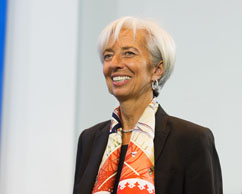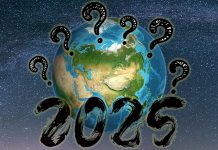THE World Economic Forum states as its mission that it is “committed to improving the state of the world by engaging business, political, academic and other leaders of society to shape global, regional, and industry agendas”.
Every year, “experts” from government, business, academia and non-governmental organisations gather in super expensive Davos, Switzerland, for the WEF’s annual meeting.
One question that always arises is who is WEF thinking about improving the shape of the world for.
According to an Oxfam report earlier this week, some 82% of the wealth generated across the globe last year went to the richest 1% of the global population, while 3.7 billion people who make up the poorest half of the world saw no increase in their wealth.
Gathering Of The Rich — Are We On The Same Stage?
This is a somewhat strange outcome that WEF purports to address, but we see things getting worse year after year. The elephant in the room is that the types of people that the WEF meeting attract are likely to be in that 1% of the global population for whom wealth rose.
As such, we see the repeated propagation of the same jaded and cliched ideas from the same people who have virtually brought the world to its knees in the last 10 years with their policy of giving alcoholics whisky, that is, addressing debt problems by issuing more debt. The biggest beneficiaries of such actions are themselves, as the Oxfam wealth distribution data confirm.
You Might Also Like To Read:
Singapore’s Positive Train Of Thought
Big Experience, Tiny Footprint
This year’s event, which started on 23 January and runs for four days, featured a strong Indian delegation.
Narendra Modi became the first Indian Premier to address the WEF. And speaking about women empowerment was Bollywood and global film star and Dubai’s favourite adopted son, Shah Rukh Khan (main picture), who received the Crystal Award and had some advice that may help give these talks some perspective.
In his speech, Khan spoke about attaining global balance: “Equality is God-given, we are all born equal and Earth’s resources should be distributed likewise. Some of us who get to be gatekeeper must open the gates and let everyone in.”
While that’s probably going to make a lot of people uncomfortable, they will likely politely applaud before carrying on as per normal.
A Free Ride From The Media
The mainstream media around the world continues to give WEF and its ilk a free ride. This is likely because the owners of media companies are also in that 1%, with a similar agenda, namely growing their personal wealth. These types of people only see headline numbers and jump to broadly favourable conclusions based on them.
Indeed, headline numbers seem to be crafted to justify the existence of organisations like WEF.
For More Commentaries visit http://www.storm.sg/views/
As if on cue, earlier this week, the International Monetary Fund (IMF) noted that global economies are recovering simultaneously and at a stronger pace, and will get at least a short-term boost from tax cuts in the US.
The global economy is now expected to grow 3.9% this year and in 2019, up by 0.2 percentage points from its previous estimates, and also up from 3.7% in 2017.

IMF adds that the stronger growth could also provide the seeds of a possible reversal if it triggers faster-than-expected inflation in advanced economies, and a quicker increase in interest rates.
IMF chief Christine Lagarde warned against complacency. “This is clearly mostly a cyclical
recovery and absent continuous reforms, the fundamental forces that had us worried about the ‘new mediocre’ — and future growth potential — will remain in place,” she said.
Almost simultaneously, the IMF’s chief economist, Maurice Obstfeld, noted that the factors creating the current global upswing were unlikely to last for long. “The next recession may be closer than we think,” he told reporters in Davos earlier this week.
IMF is essentially saying that global economic growth is improving but, wait, there may be a recession coming. That should make things clearer for everyone.
Equality At Davos: The Favoured Few
The fact that the accumulation of wealth across the world is so skewed to a microscopic minority in terms of global population is a very serious matter. Persistent income inequality and widening of the wealth gap can cause dangerous social unrest when a tipping point is reached. Arguably, the world is edging ever closer to that tipping point as wealth gaps widen.
In the past, this could be covered up by biased reporting in the mainstream media, but social media — Facebook and Twitter — are now the main source of news for the public. People are becoming more aware of the systemic flaws embedded in organisations like WEF and the IMF.
More people are likely well informed enough to ask what is the point of having such organisations.
Meanwhile, why are ordinary workers around the world getting such a raw deal from government, industry and business leaders? Oxfam’s report highlighted the key factors driving up rewards for shareholders and corporate leaders at the expense of workers’ pay and conditions. These included the erosion of workers’ rights, the excessive influence of big business over government policy-making and the corporate drive to minimise cost in order to maximise returns to shareholders.
These three factors cited by Oxfam are evident in Singapore. Indeed, In the city-state, it has become harder to distinguish the government from trade unions, from big business, from corporates and from shareholders.
It should be noted that Singapore’s Gini coefficient, which is a measure of wealth inequality, stood at 0.402 in 2016. This was higher than that in developed Asian countries like Japan (0.330) and South Korea (0.295).
Singapore’s Gini coefficient would have been higher if not for some wealth distribution by the government. However, wealth redistribution treats only the symptoms of income inequality but does not address the cause. So, how do you deal with the cause in Singapore?
The answer is simple if one seriously considers Oxfam’s three factors: Less government.
Which then begs the question, what purpose do WEF, IMF and the other empowered organisations serve?
Thus It Was Unboxed by One-Five-Four Analytics presents alternative angles to current events. Reach us at 154analytics@gmail.com
Images: / Shutterstock.com



















